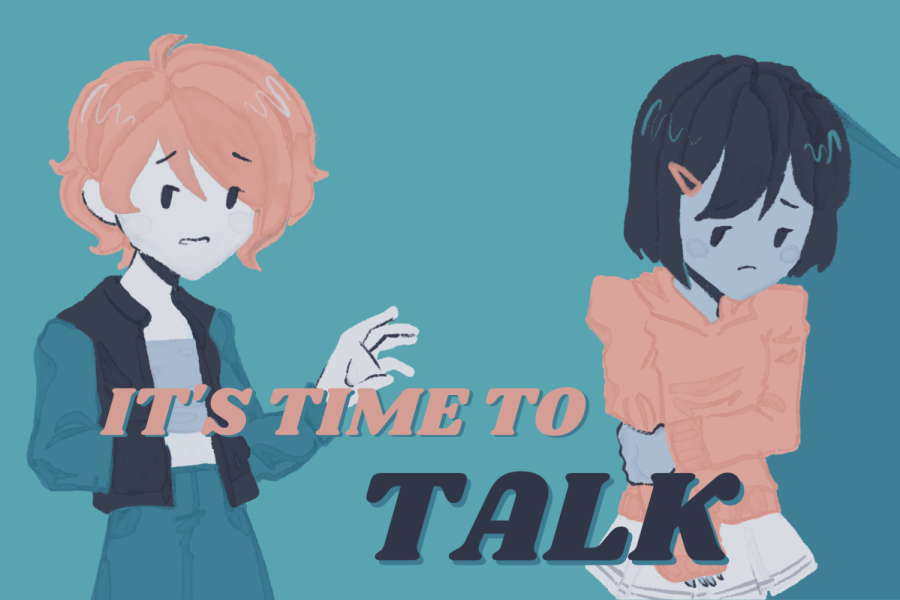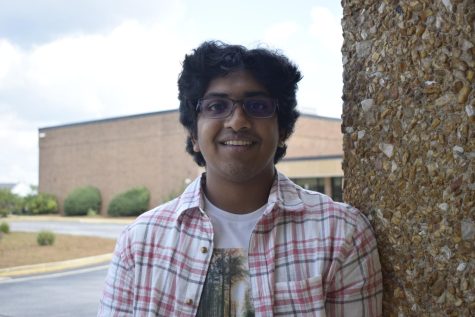The clock ticked in deafening silence after Deputy Superintendent Tiffany Holman-Besse, a board member, made her opening statement. Fifteen participants mulled the question: “How does poor mental health affect you?”
November marked the first meeting between the Parkway Board of Education (BOE) and students in an attempt to tackle the mental health epidemic in high schools. The meeting was proposed and held by Holman-Besse, who wanted to fix the BOE’s unfamiliarity with students’ mental health problems by asking students who might have experience with it. Junior Krish Bhagat attended the meeting to share his expertise as co-leader of the Mental Health Awareness club, and senior Lauren McLeod attended to contribute her experiences.
“A lot of [the meeting] was about balance in everyone’s lives and about how some people are comfortable in a downward mental spiral, which is not okay or normal,” Bhagat said.
The students represented all grade levels to share their experiences and ideas in exchange for a plan for the BOE.
“The [BOE] might plan to use [the meeting] as a point of reference to guide future decisions, but I genuinely wish higher-ups did more outreach in the school because this is an important and upfront issue that isn’t being addressed to the point it should be. I would like to see what they do with what we gave them,” McLeod said.
The meeting took place in the cafeteria of South Middle School after participants were provided with a complimentary dinner of pizza, calzones and salads.
“I wasn’t a fan of the circle. I thought it was informal and hard to hear. I think it’s hard to listen to people when you can’t see them, and there was a lot of people you couldn’t see. The meeting would have been better if it was in a conference room,” Bhagat said.
Due to the 45-minute time frame, students were not satisfied by the discussion level.
“Given the timeframe that we had, we were not able to go in depth. We threw out problems, and we didn’t get a lot back; it felt like [the BOE] was skimming the surface level of the problem, and they didn’t seem interested in going more in-depth,” McLeod said.
In the future, McLeod would like more involvement and participation from the BOE in mental health.
“I would like more frequent meetings, maybe twice a month, more mental health days, and more intention to incite real change. This is a big step up from the cold wall we are normally met with when speaking to [the BOE], but they need to keep going,” McLeod said.




![Smiling in a sea of Longhorns, Fox 2 reporter Ty Hawkins joins junior Darren Young during the morning Oct. 3 pep rally. The last time West was featured in this segment was 2011. “[I hope people see this and think] if you come to [Parkway] West, you will have the time of your life because there are so many fun activities to do that make it feel like you belong here. I was surprised so many people attended, but it was a lot of fun,” Young said.](https://pwestpathfinder.com/wp-content/uploads/2025/10/Edited2-1200x798.jpg)
![West High seniors and families listen as a representative of The Scholarship Foundation of St. Louis, Teresa Steinkamp, leads a Free Application for Federal Student Aid (FAFSA) workshop. This session, held in the library, provided guidance on financial aid, scholarships and student loan options. “This event is very beneficial for any seniors who are applying to or considering applying to colleges after high school [because] the cost of college is on the rise for seniors and parents,” college and career counselor Chris Lorenz said.](https://pwestpathfinder.com/wp-content/uploads/2025/09/DSC_4478-1200x778.jpg)
![Senior Kamori Berry walks across the field during halftime at the Homecoming football game on Sept. 12. During the pep assembly earlier that day, she was pronounced Homecoming Queen. “I thought it was nice that the crowd [started] cheering right away. I know [my friends] were really excited for me, and my family was happy because typically non-white people don't win,” Berry said.](https://pwestpathfinder.com/wp-content/uploads/2025/09/DSC7046-Enhanced-NR-1200x798.jpg)



![Pitching the ball on Apr. 14, senior Henry Wild and his team play against Belleville East. Wild was named scholar athlete of the year by St. Louis Post-Dispatch after maintaining a high cumulative GPA and staying involved with athletics for all of high school. “It’s an amazing honor. I feel very blessed to have the opportunity to represent my school [and] what [it] stands for,” Wild said.](https://pwestpathfinder.com/wp-content/uploads/2025/05/unnamed-6-1200x714.jpg)
![The Glory of Missouri award recipients stand with their certificates after finding out which virtue they were chosen to represent. When discovering their virtues, some recipients were met with contented confirmation, while others, complete surprise. “I was not at all surprised to get Truth. I discussed that with some of the other people who were getting the awards as well, and that came up as something I might get. Being in journalism, [Fellowship of Christian Athletes and] Speech and Debate, there's a culture of really caring about truth as a principle that I've tried to contribute to as well. I was very glad; [Truth] was a great one to get,” senior Will Gonsior said.](https://pwestpathfinder.com/wp-content/uploads/2025/04/Group-Glory-of-Missouri.jpg)

